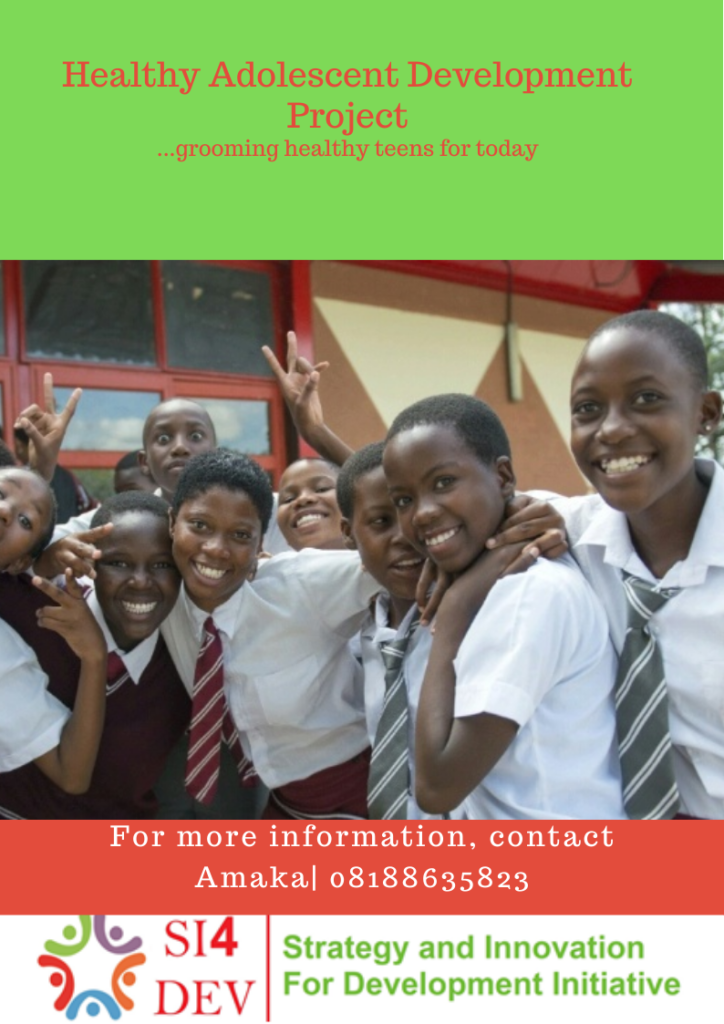During an interactive session in a seminar organized in one of the secondary schools in Ibadan Oyo State, students were asked what came to their mind when they hear about someone having mental health problem. Bola’s response was ‘it means the person is mad’, the facilitator went ahead to ask another student Michael, who said ‘for someone to have a mental health problem it means the person is in sane’. The above has shown that there is a gap in the knowledge about mental health in our society. It is no news that this gap is not just common in adolescents only but adults alike.
Mental health problems such as depression is the leading cause of illness and disability among adolescents age 15 to 19 years (WHO). It is a public health menace and one of the causes of global burden of disease and more prevalent in low and middle-income countries like Nigeria. Young people between the ages of 10-24 years constitute one-third of Nigeria’s population while adolescents age 10-19 years constitute almost a fifth. This significant but vulnerable population is exposed to a broad range of mental issues (Depression, anxiety, substance abuse and suicide). In addition, a lot of mental health issues seen in adults start by 14 years of age. Also, Adolescence phase of development is associated with a lot of social crisis; seeking intimacy with pears, independence and identity, of which if not properly guided could lead to behavioral and emotional problems such as depression, truancy this leads to low academic performance, social withdrawal from school activities, substance abuse including alcohol intake and eventually suicide.
Furthermore, Adolescent mental health over the years have been neglected despite the fact that it is as important as the physical health and one of the causes of global disease burden. Thus, the consequences of not addressing adolescent mental health issues extend to adulthood, impairing both physical and mental health and limiting opportunities to lead fulfilling lives as adults.
Hence, the Healthy Adolescent Development Project seeks to create awareness and address depression and other mental health issues (Substance abuse, anxiety and suicide) among 150 Senior Secondary School Students in 3 Local Government Areas in Ibadan, between the ages of 13 and 19 years; the project will promote healthy development of these adolescents; promote and protect their physical & mental health; and prevent emotional and behavioural problems in adolescents through a 6 weeks training program where they will be trained and equipped with problem solving skills and interpersonal skills; building self-esteem and confidence; developing coping skills to manage emotions and engaging in community activities.
